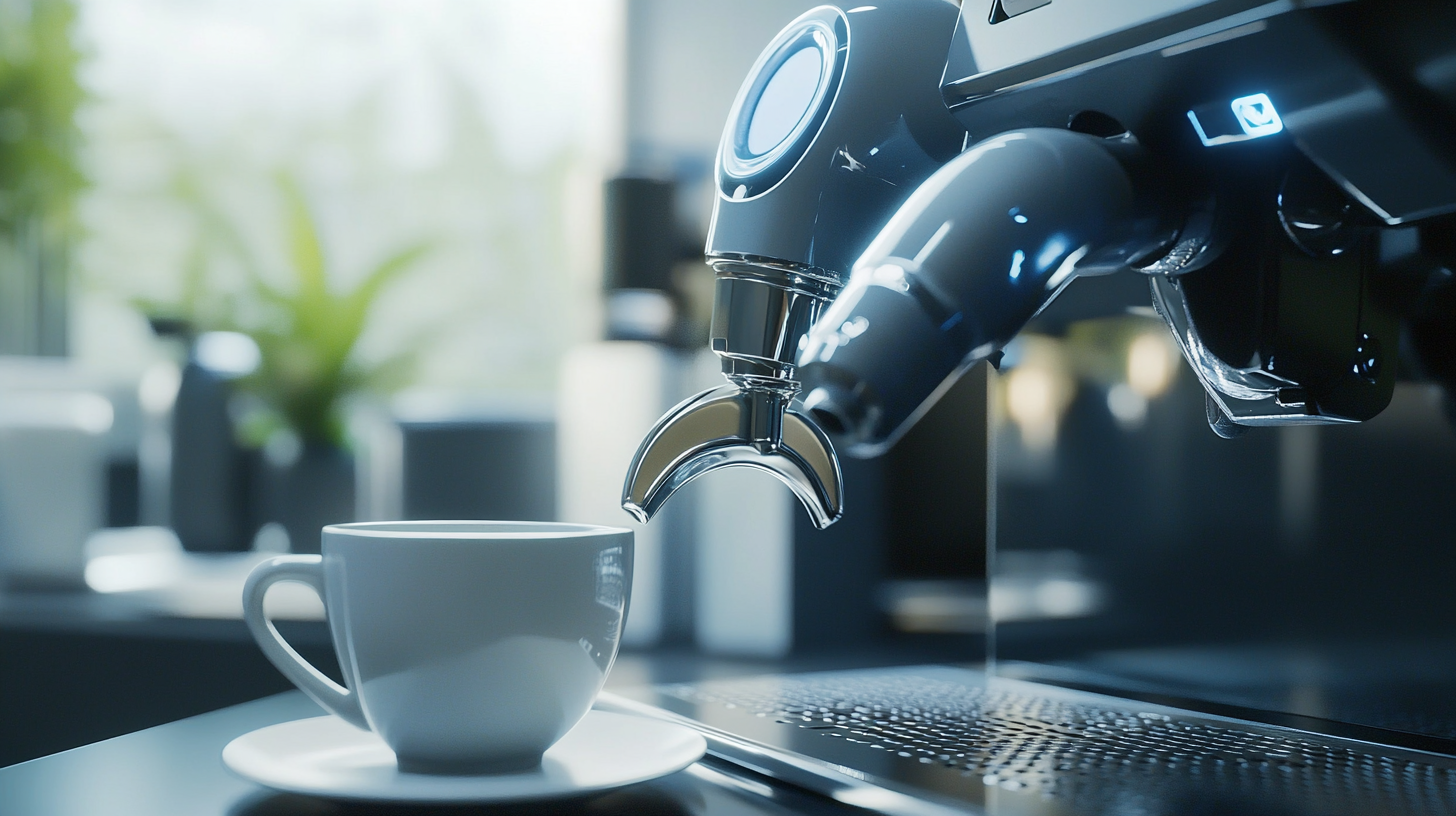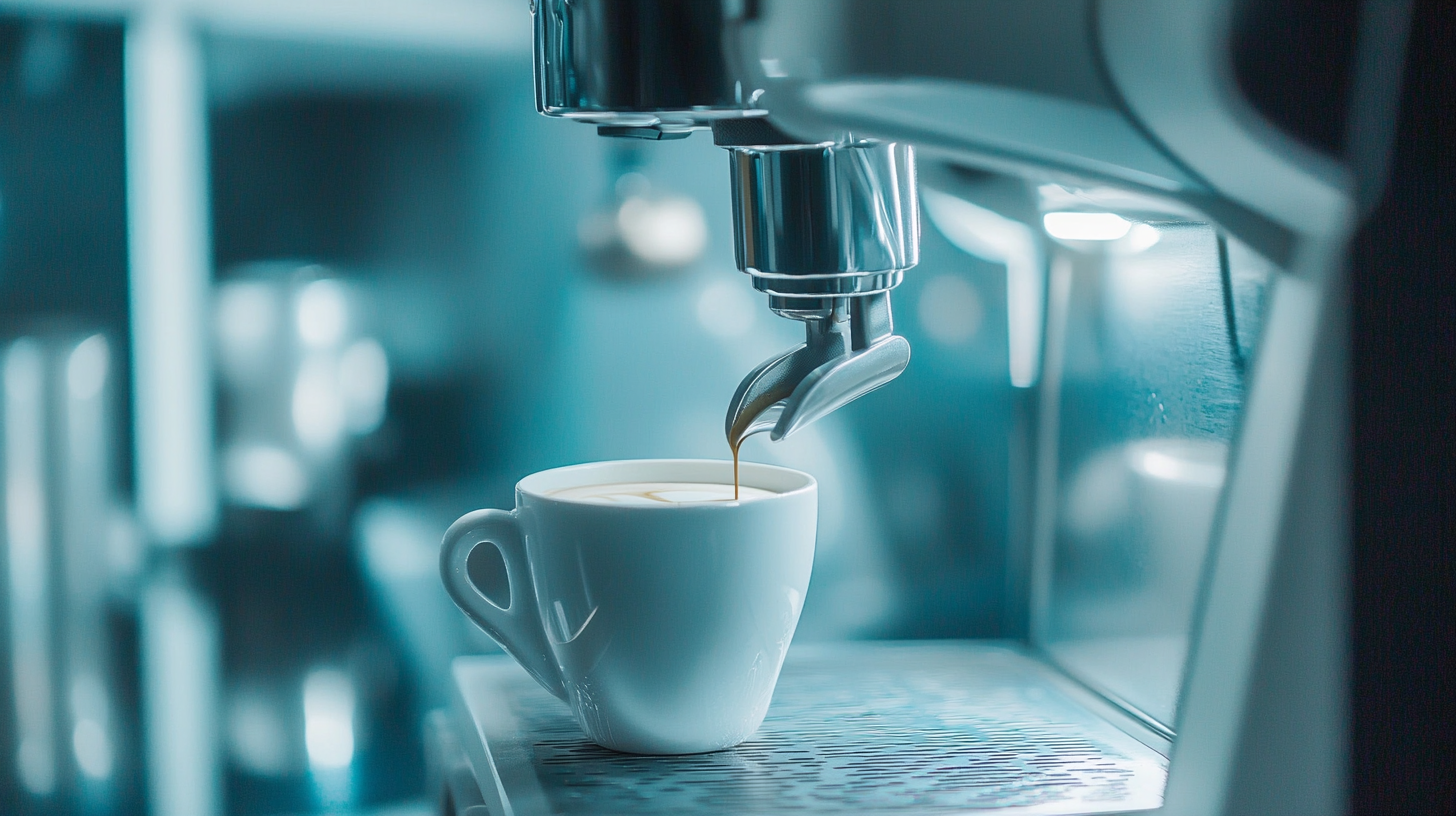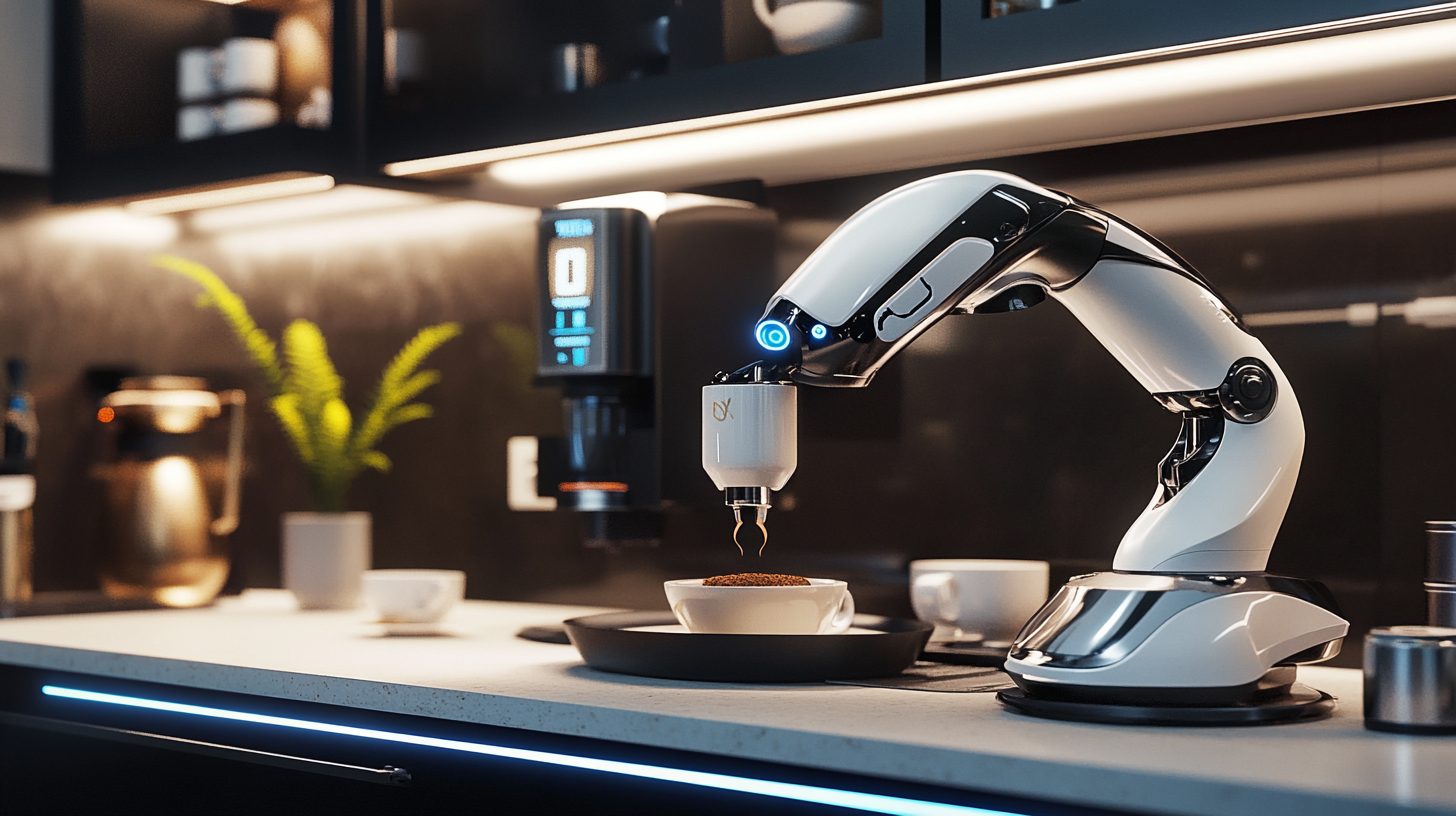In recent years, the global coffee industry has faced significant challenges due to fluctuating tariffs and economic pressures, particularly between the United States and China. However, the demand for premium coffee experiences and innovations such as the Robotic Barista Coffee Machine has surged, demonstrating resilience amidst these tariff-induced obstacles. According to a report from Research and Markets, the global coffee machine market is expected to reach USD 3.63 billion by 2025, with a compound annual growth rate (CAGR) of 7.5%. This substantial growth is largely driven by technological advancements and the increasing popularity of automated coffee solutions. Chinese manufacturers are strategically capitalizing on this trend, leveraging their expertise in robotics to create advanced coffee machines that not only meet high-quality standards but also offer competitive pricing. As we explore the innovative solutions offered by Chinese companies, we uncover how they navigate tariff challenges and maintain a growth trajectory in the ever-evolving coffee industry.

The coffee machine market has seen significant shifts due to tariff regulations, particularly affecting those importing robotic barista machines from China. According to a recent report by Mordor Intelligence, the global automated coffee machines market is projected to reach USD 1.68 billion by 2026, growing at a CAGR of 10.3% from 2021-2026. However, the imposition of tariffs has led to increased pricing pressures, forcing businesses to rethink their import strategies. For instance, a 25% tariff on imported coffee machines can contribute significantly to retail prices, affecting both consumers and manufacturers.
To navigate these tariff challenges effectively, businesses should consider diversifying their supply chains. Sourcing components domestically or from countries with lower tariffs can mitigate the financial impact. Furthermore, investing in innovation, such as integrating advanced technology to enhance operational efficiency, can help maintain competitive pricing.
**Tips**: Remain informed on tariff changes by regularly consulting government updates and industry reports. Engage with trade associations that can offer insights and advocacy on tariff-related issues. Finally, consider establishing long-term partnerships with suppliers to lock in favorable pricing and terms despite fluctuating tariff rates.

The coffee industry has seen a remarkable transformation with the introduction of robotic barista machines, particularly from innovative manufacturers in China. These machines leverage cutting-edge technology to optimize the brewing process, delivering consistent quality and efficiency. According to a recent report by MarketsandMarkets, the global coffee machine market is projected to reach $11.2 billion by 2026, with robotic machines playing a significant role in this growth due to their ability to enhance customer experiences and reduce operational costs.
One of the standout features of these robotic barista machines is their ability to integrate artificial intelligence (AI) and machine learning algorithms. This enables them to learn customer preferences over time, providing a personalized coffee experience. Additionally, many machines boast advanced automation processes, allowing for the brewing of multiple coffee types simultaneously without compromising quality. As highlighted in the report by Grand View Research, the demand for automation in the coffee sector is expected to increase, emphasizing the significance of these advanced machines in meeting consumer expectations for speed and customizability.
As tariffs continue to impact global trade, Chinese manufacturers are finding innovative ways to navigate these challenges, particularly in the robotics and automated coffee machine sectors. By enhancing production processes and leveraging advanced technologies, they are not only reducing costs but also improving the quality of their products. Many manufacturers are investing in research and development to create machines that not only make coffee but also offer customized experiences for consumers, a feature that stands out in a competitive market.
Furthermore, collaboration with international partners is becoming increasingly common. Chinese manufacturers are strategically aligning with global brands, allowing them to distribute their robotic coffee machines more effectively across various markets. By understanding the specific needs and tastes of different regions, they can tailor their offerings and ensure compliance with local regulations, all while maintaining a focus on innovation and quality. This adaptability is proving essential for navigating the complexities brought about by tariffs and positioning themselves as leaders in the evolving landscape of coffee automation.

The coffee industry is experiencing a transformative shift with the integration of automation and robotics. As the demand for high-quality coffee continues to rise, innovative technologies are stepping in to streamline production and enhance service efficiency. Robotic baristas are emerging as a game-changer, allowing cafes to serve consistent, top-notch beverages, while also reducing wait times and minimizing human error. This seamless combination of technology and creativity results in a superior customer experience, making coffee shops more appealing in a competitive market.
Moreover, the use of automated systems in coffee production is redefining traditional farming and processing methods. Advanced machinery not only increases productivity but also addresses challenges such as labor shortages and fluctuating costs. For instance, robotic solutions can optimize the harvesting process, ensuring that coffee cherries are picked at their peak freshness. This not only enhances the quality of the final product but also promotes sustainable practices by reducing waste. As China leads the way in developing innovative robotic coffee machines, the global coffee landscape is set to evolve, highlighting the significant role of automation in shaping the future of coffee production and service.
The global coffee machine market is witnessing a significant shift towards automation, particularly with the rise of robotic barista machines. According to a report by Mordor Intelligence, the global coffee machine market is expected to grow at an annual rate of over 7% from 2023 to 2028, driven in part by increased consumer demand for high-quality beverage experiences and the convenience of automation. Robotic baristas not only enhance service speed but also maintain consistency in coffee quality, providing a competitive edge in bustling coffee shops and restaurants.
Additionally, the growing trend of specialty coffee consumption presents a ripe opportunity for robotic baristas. Recent data from Euromonitor International indicates that the specialty coffee segment is projected to grow by 12% annually through 2025. As coffee enthusiasts seek unique flavors and experiences, robotic barista machines from China offer innovative solutions with customizable brewing options and expert-level precision. The convergence of technology and consumer preferences demonstrates a promising future for robotic barista machines, particularly in global markets that continue to embrace automation as a means to enhance operational efficiency and customer satisfaction.